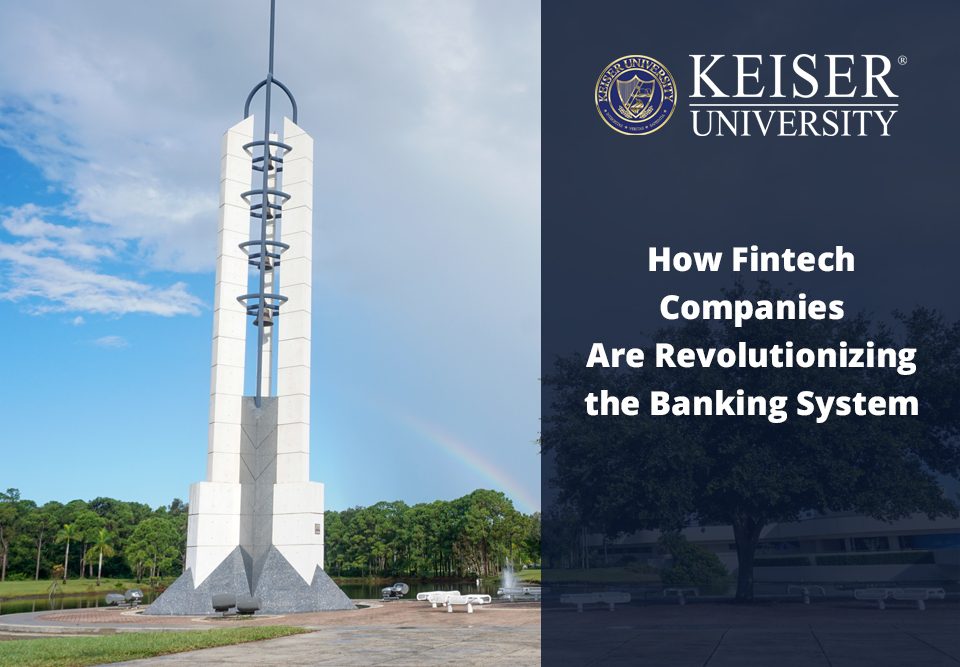In basic or bare-bones terms, fintech is any software, technology, or app that allows you to manage and complete financial transactions digitally. In other words, when you pay bills online, you are using financial technology. When you transfer money from your checking account to another person’s bank account, you’re using fintech. When you buy or sell cryptocurrency, you’re also using fintech.
Fintech is making brick-and-mortar banks look like relics from the stone age of banking and finance. In fact, people prefer using fintech software to conduct all forms of financial transactions digitally by a large margin. In 2018, nearly 6,000 fintech startups were providing digital banking services. The latest number of fintech startups in 2023? Over 11,600 and climbing!
Well-known fintech examples include “fintech unicorns,” or fintech companies that are valued at $1 billion or more. Mastercard, Visa, Paypal, Coinbase, Chime and Bill.com are some of the more popular (and lucrative) fintech unicorns. These giants of the fintech industry provide customers with financial application program interfaces (financial APIs) that connect their accounts with fintech software or mobile apps. Some fintech businesses also offer web-based tools that perform the same functions as mobile apps.
Better adherence to fintech compliance regulations has further fueled the popularity of fintech. As advanced emerging technology incorporates stronger digital security methods to stop hackers in their tracks, fintech companies are rapidly persuading skeptics that digital banking is a 21st-century life hack you can’t live without.
How Did the Fintech Industry Start?
Believe it or not, the beginning of the fintech industry can be traced all the way back to the 1950s and 1960s, with the advent of electronic fund transfers. However, the modern fintech industry as we know it began to emerge in the 1990s with the widespread adoption of the internet paving the way for numerous technological advancements across every industry, including finance. The internet provided a platform for financial institutions to offer services online, allowing customers to access their accounts, make transactions and manage investments electronically.
Then, online payment systems like PayPal (founded in 1998) revolutionized how money is transferred between individuals and businesses, facilitating faster and more convenient transactions and reducing reliance on traditional banking methods. With the emergence in the early 2000s of peer-to-peer (P2P) lending platforms like Prosper and LendingClub connecting borrowers directly with lenders, bypassing traditional financial institutions altogether, the stage was truly set for everything fintech offers users today.
Four Insane (But True) Things About the Evolution of the Fintech Industry
- A mobile payment service called M-Pesa has contributed to increasing the income of rural households in Kenya by 30 percent since its inception in 2007.
- Experts predict that fintech lenders may abolish the necessity of having a high credit rating to get a loan.
- The fintech industry is now worth over $300 billion, thanks to investors who foresaw the end of traditional banking systems years ago.
- Fintech companies now rely heavily on artificial intelligence (AI), such as algorithms called Robo-Advisors that provide automated investment management services and recommendations.
What will the fintech industry look like in the next five or ten years? How much more disruption can the old-school financial system take? According to experts, not much, at least not if they’re unwilling to adapt. And, for entrepreneurs who want to create fintech startups, that’s great news.
Have You Heard of These Fintech Companies?
In the rapidly changing landscape of financial technology, a new wave of fintech companies is transforming the way we manage and interact with our finances. These innovative startups are harnessing cutting-edge technologies and disruptive ideas to reshape traditional banking systems, revolutionize payment methods and create inclusive financial solutions. If you aren’t already familiar with the following fintech companies out there making waves, consider this your formal introduction.
Chime
Chime is not a bank – it’s a fintech company that offers online financial services through Stride and Bancorp. Over 50,000 ATMs across the U.S. accept Chime debit cards from nearly 15 million Chime customers. Unlike traditional banking services, Chime provides the option of receiving direct deposit paychecks two days before they drop. You can also build credit and earn interest on savings without paying monthly fees. Another benefit of Chime is that it is compatible with Apple Pay and Google Pay.
SoFi
Similar to Chime, SoFi offers a wider range of online fintech services that include personal loans, home mortgages, insurance, refinancing of student loans and even investing in cryptocurrency. The reason SoFi is able to provide additional services is that it is a chartered bank. In the U.S., chartered banks must get permission from the Office of the Comptroller of the Currency to operate as a financial service.
Paxos
On its website, Paxos states that it is a “regulated blockchain infrastructure platform building a new, open financial system.” A prime example of a cutting-edge fintech company, Paxos holds and secures both digital and physical assets and offers fintech technology that streamlines the movement of assets on any blockchain. Starting as a Bitcoin exchange company in 2012 called itBit, Paxos later became the first approved and regulated cryptocurrency business in the United States. Currently, you can purchase Paxos Standard (regulated) stablecoins and a gold-backed token called PAX Gold. PayPal partnered with Paxos in 2020 to offer its customers the ability to hold, sell and buy cryptocurrency through Paxos.
Fintech Compliance Regulations: What Fintech Companies Can and Cannot Do
Fintech compliance regulations are essentially self-determining and constantly changing to adapt to emerging technology and customer demands. Intended to benefit fintech companies and consumers, these regulations mostly involve compliance with security measures that prevent hackers from causing the kind of damage that discourages investors and destabilizes platforms.
Since the U.S. is home to the largest network of fintech companies, it also has the highest number of fintech compliance regulations. If you want to jump on the fintech bandwagon and become the next Chime, you’ll have to familiarize yourself with the following regulatory entities:
- Office of the Comptroller of the Currency (OCC)
- Financial Crimes Enforcement Network (FinCEN)
- Financial Industry Regulatory Authority (FINRA)
- Commodity Futures Trading Commission (CFTC)
All these regulatory bodies ensure fintech companies are complying with the following Acts:
- Bank Secrecy Act (Deals with money laundering)
- E-Sign Act (Establishes standards for issuing and signing electronic documents)
- Gramm-Leach-Bliley Act (Requires protection of consumer information and informing consumers of privacy policies)
- U.S. Patriot Act (Designed to assist in the proper training of fintech employees)
- Truth in Savings Act (Sets compliance regulations for disclosing lender fees to consumers)
- Federal Red Flag Rule Act (Ensures all financial institutions are complying with internal policies meant to prevent theft and fraud)
If a fintech company is found to be noncompliant with regulations, it could face fines, penalties and potential disruption of its services.
Winning Clients and Influencing Markets: How Fintech Is Energizing and Transforming the Financial Industry
Blockchain Technology
Blockchain technology is kind of like a Google spreadsheet that contains the transactional records of multiple computers participating in one network. Individuals belonging to this specific computer network can view financial transactions on this spreadsheet/digital ledger, but they cannot manipulate transactional data.
Transactions completed and recorded in the ledger are signed digitally by the owner of the blockchain. The owner’s signature authenticates and safeguards transactions from manipulation. Fintech companies that use blockchain payment systems do not rely on third-party go-betweens to provide transparent and safe transactions, which reduces fees and expedites the transaction process.
By supporting fintech companies with a decentralized framework and cryptographic protocols like message authentication, unconscious transfer and zero-knowledge proof protocols, blockchain technology is one of the best methods for strengthening cybersecurity.
Digital Banking and Investing
The gig economy, e-commerce business and retail investing are expected to continue flourishing with fintech companies at the forefront of digital banking practices. The ability to access banking and financial solutions within minutes of connecting with fintech software or apps is certainly making life easier for the countless people worldwide. In fact, a recent study shows that 78 percent of Americans prefer digital banking over in-person banking. In other unsurprising news, the demographics most enthusiastic about digital banking are millennials and Gen Z. The least enthusiastic? You may have guessed it–baby boomers.
Independent investors are rapidly discovering that fintech is an essential aspect of their successful investment strategy. In fact, many investors are no longer relying on third-party human entities to buy, sell or trade stock. Instead, fintech allows them to use digital trading platforms and apps to access a wide variety of markets.
E-trade Financial Corporation is an example of an electronic trading platform that helped bolster the rise of fintech and digital trading of financial assets. Now a subsidiary of Morgan Stanley, E-trade was founded in 1982 by Bernard Newcomb and William Porter. The initial $15,000 in capital that Porter and Newcomb used to start E-trade has made them multi-millionaires over the past 40 years. What makes E-trade an exemplary fintech investing and trading company is its ability to provide pattern analysis using algorithms, trade option probabilities, historical and current market trends and risk analysis tools.
Cybersecurity and Fintech: How Fintech Companies Are Smacking Down Hackers
Next to the healthcare industry, the fintech industry is victimized by more cyber threats than most other industries. Larger fintech companies are always on alert for advanced persistent threats (APTs) attempting to break into their networks. Hackers specializing in APTs will target one or two companies for extended periods by sending phishing emails or fake promotional ads infected with spyware. The purpose of an APT hacker is to remain undetected long enough to steal massive amounts of sensitive data. Preventing APTs involves the installation of cloud, hardware and software firewalls and constant monitoring of systems by a risk management agency.
The development of strong, proprietary cybersecurity technology by fintech professionals focuses on the secure storage of customer data with encryption, access control and machine learning algorithms that work to detect emerging threats, financial fraud and aberrant activities. Using AI to support cybersecurity measures also increases the validity of forecasts regarding market trends, analyzes individual customer behavior to improve personalized services and protects customers and shareholders from suffering costly instances of fraud and hacking.
Is Fintech Changing the Financial Services Industry? No – Fintech is Replacing the Financial Services Industry!
The success of fintech can be summarized in four words: it simplifies your life. Also, the globalization of the world’s economy is almost complete. With fintech reaching people in remote areas and making it possible for them to improve their financial status, the global banking system is too interconnected and co-dependent to enable traditional financial services to survive.
Fintech companies offer 24/7 access to services, remarkable convenience, immediacy and affordability for consumers who have become accustomed to the “digital” life. They also offer cutting-edge, emerging technology that streamlines blockchain systems, trading platforms, loan receptiveness, AI-powered mortgage refinancing, cryptocurrency transactions and cross-border financial business.
Will Fintech Ever Financially Rule the Universe?
Maybe not the universe, but definitely our section of the solar system. At least that’s what financial experts are predicting as traditional banks continue failing and falling like dominoes. The revolutionary modernization of global financial systems is not only galvanizing consumer demands and behaviors but also permanently reconditioning financial technology. Now that fintech has become a necessity in our lives and is providing much-needed financial institution services to underserved areas of the world, it is without a doubt here to stay.
Three Top Careers in Fintech
Earn a graduate degree in fintech at Keiser University and you could pursue a career as a:
App Developer: Get your AI, machine learning, Python, JavaScript and deep learning skills on and work as an app developer for a fintech company.
Data Scientist: Start working for a fintech company as a data scientist and you could earn around $90,000 annually for your ability to examine huge amounts of customer usage and feedback data and provide valuable insights about this data to your employer. You’ll need in-depth knowledge of NoSQL databases, statistics, query languages and information visualization systems to be a fintech data scientist.
Blockchain Developer: Probably the most in-demand fintech job of today is that of blockchain developer. In addition to managing decentralized digital ledgers (databases), blockchain developers also create smart contracts and build apps using blockchain technology. You’ll also need to know a few programming languages, like Ripple, Java and C++.
Grow in the Fintech Industry at Keiser University!
Among the occupations predicted to experience exponential job growth over the next decade are software developers, financial managers, computer and information systems managers and many more. It’s never been a better time to enroll in the Master of Science in Financial Technology at Keiser University.
Keiser University Graduate School offers comprehensive student-oriented services to assist you in achieving your educational and professional goals. Our graduate programs include master’s, specialist, doctoral and certificate programs. Online options are also available in a wide range of fields.
Keiser is committed to the success of all our undergraduate and graduate students. Learn more about graduate programs that can lead you to the front door of a fintech company and an exciting career.
Request info today to find the right program for you!






 The instructors at Keiser University impacted my life. They believed in my ability to become a great graphic designer, regardless of how I felt about my skills. KU helped to prepare me for the real world and got me to where I am today.
The instructors at Keiser University impacted my life. They believed in my ability to become a great graphic designer, regardless of how I felt about my skills. KU helped to prepare me for the real world and got me to where I am today.
